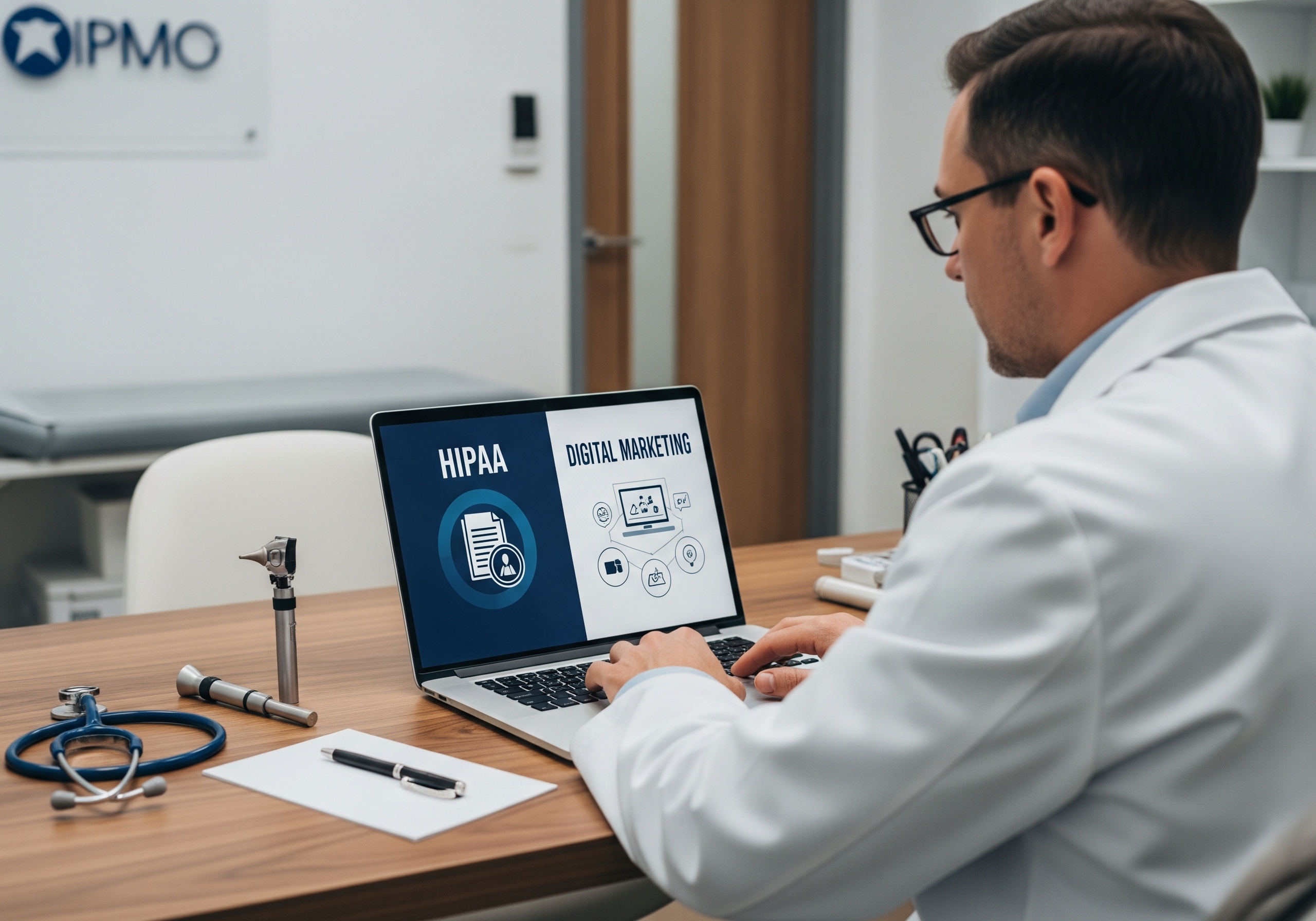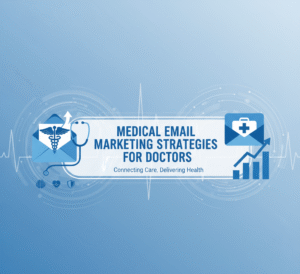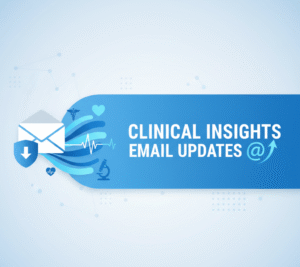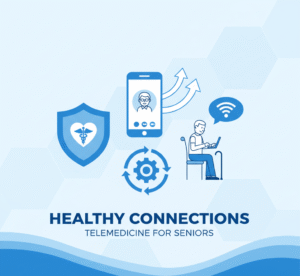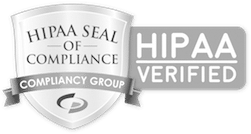“Learn how to navigate HIPAA and digital marketing to protect patient privacy while growing your healthcare practice with compliant strategies.”
The world of healthcare is undergoing a profound transformation. Patient care extends far beyond the four walls of a clinic or hospital. It now includes online portals, telehealth appointments, and a robust digital presence. Healthcare providers are increasingly recognizing the power of digital marketing. They use it to connect with patients, build their brand, and grow their practice.
However, this digital revolution comes with a significant responsibility. The Health Insurance Portability and Accountability Act (HIPAA) looms large over every online interaction. HIPAA is not just a set of dusty regulations. It is the cornerstone of patient trust and privacy. For healthcare marketers and providers, understanding HIPAA is not optional. It is a fundamental requirement. Failure to comply can lead to severe penalties, reputational damage, and a loss of patient confidence.
This comprehensive guide will demystify the complex relationship between HIPAA and digital marketing. We will explore the essential aspects of HIPAA compliance, helping you confidently navigate the digital landscape. You will learn to promote your services ethically and legally online while safeguarding patient privacy. We will cover HIPAA guidelines, common pitfalls, and best practices for secure digital outreach.
What Exactly is HIPAA? A Refresher
Before diving into digital marketing specifics, let’s clearly understand HIPAA. HIPAA was signed into law in 1996. Its primary purpose was to improve the efficiency and effectiveness of the healthcare system and protect the privacy and security of a patient’s health information.
HIPAA has several key components. The most relevant to our discussion are the privacy and security rules.
The Privacy Rule sets national standards for protecting certain health information. It gives patients significant rights over their health information and dictates when and how their data can be used and disclosed. This rule applies to Protected Health Information (PHI).
The Security Rule specifies a series of administrative, physical, and technical safeguards to ensure the confidentiality, integrity, and availability of electronic Protected Health Information (ePHI). This rule is especially critical in the digital age. It governs how healthcare providers handle and secure patient data in their computer systems and on the Internet.
So, what is Protected Health Information (PHI)? PHI is any information about an individual’s health status, provision of healthcare, or payment for healthcare. It also includes individually identifiable information. This can be as simple as a name, an address, a birth date, or a Social Security number. Combine any of these identifiers with health information, and you have PHI.
Think about an appointment reminder. A simple text message saying, “Reminder: Your appointment with Dr. Smith is on Tuesday,” is not PHI. It does not contain any specific health information. But a message saying, “Reminder: Your appointment for your cancer treatment is on Tuesday,” is absolutely PHI. It reveals a diagnosis. This distinction is crucial for all forms of digital communication.
The Intersection of HIPAA and Digital Marketing
Let’s bridge the gap between these regulations and your marketing efforts. Digital marketing for healthcare providers involves a wide array of activities. These include:
- Website management: Your website is often the first point of contact for a potential patient.
- Search Engine Optimization (SEO): Optimizing your site to appear in search results.
- Content marketing: Creating blog posts, articles, and videos.
- Email marketing: Sending newsletters, appointment reminders, and promotional offers.
- Social media marketing: Engaging with your community on platforms like Facebook, Instagram, and LinkedIn.
- Paid advertising: Running ads on Google, social media, and other platforms.
Each of these activities carries potential HIPAA risks. A single misstep can expose PHI and trigger a compliance violation.
Common HIPAA Compliance Pitfalls in Digital Marketing
Many healthcare providers and marketers unknowingly fall into compliance traps. Here are some of the most common mistakes:
1. Patient Testimonials and Reviews:
Patient testimonials are a powerful marketing tool. They build social proof and trust. However, they are a significant source of HIPAA violations. You cannot use a patient’s testimonial without their specific, written authorization. This authorization must be very detailed. It must specify what information will be used, for what purpose, and for how long.
A simple online form where a patient can submit a review is not enough. You must obtain a formal, HIPAA-compliant release form. This is true even if the patient posts the review publicly. When you use that review on your website or marketing materials, you take responsibility for the PHI it contains.
Furthermore, you cannot respond to a patient’s public review in a way that confirms they are a patient. For example, if a patient leaves a negative review, you cannot respond, “We are sorry you had a bad experience at our clinic. We value your feedback.” This response implies a patient-provider relationship. It is a HIPAA violation.
2. Insecure Website Contact Forms and Chatbots:
Many websites have a “Contact Us” form. Patients use it to ask questions or request an appointment. If the form collects any information that could be considered PHI, it must be secure, using encryption. The website must also have a Business Associate Agreement (BAA) with the service provider. A BAA is a legal contract that ensures that the service provider will protect PHI according to HIPAA standards.
A simple “mailto:” link that opens the user’s email client is also risky. Email is not inherently secure, and sending PHI through unencrypted email is a violation. The same rules apply to chatbots. A chatbot that asks for a patient’s name, date of birth, or reason for an appointment is handling PHI. The chatbot and its platform must be HIPAA compliant and have a BAA.
3. Email and Newsletter Marketing:
Email marketing is an effective way to stay connected with your patient base. However, it requires careful handling. Sending a newsletter that discusses a specific health condition to a list of subscribers can be a violation, as it implies that the subscribers have that condition.
For example, sending an email titled “Tips for Managing Your Diabetes” to a list of 500 people. This action suggests that all 500 recipients have diabetes. This is a disclosure of PHI.
To be compliant, you must obtain a specific opt-in for marketing communications. The patient must understand what kind of information they will receive. You also need to use a HIPAA-compliant email marketing platform. Many popular platforms, like Mailchimp or Constant Contact, are not HIPAA compliant by default. They will not sign a BAA. You must seek out specialized platforms designed for healthcare.
4. Social Media Marketing:
Social media is a minefield of potential HIPAA violations. The platforms themselves are not HIPAA compliant. You should never, ever, share any PHI on social media. This includes photos, even if faces are blurred. It is difficult to completely de-identify a photo. A background detail or a tattoo could be enough to identify a patient.
You also need to be extremely careful with user-generated content. For instance, if a patient tags your practice and shares a positive experience, you cannot “like” or “share” that post if it contains any PHI. You can generally thank them for their kind words. However, you cannot acknowledge a patient-provider relationship.
Furthermore, running targeted ads based on health conditions is a violation. Social media platforms often have powerful targeting tools. You might be tempted to target a new weight loss program ad to people interested in “dieting” or “weight loss.” This is generally acceptable. However, targeting an ad to people who have joined a “diabetic support group” or “cancer survivors” group is likely a violation. It uses a person’s health information for marketing purposes without their consent.
5. Website Tracking and Analytics:
Most websites use analytics tools like Google Analytics. These tools track user behavior and collect information like IP addresses, Browsing history, and location data. When combined with other information, this data can become PHI.
For example, if a user searches for a specific condition on your website, and your analytics platform logs their IP address and the pages they visited, you may be collecting PHI. Google Analytics is not a HIPAA-compliant platform by default. It will not sign a BAA. You need to use a different, compliant analytics solution or configure Google Analytics in a way that does not collect any personally identifiable information.
Best Practices for HIPAA-Compliant Digital Marketing
So, how do you market effectively without compromising patient privacy? The key is a proactive and systematic approach. Follow these best practices to build a robust and compliant digital marketing strategy.
1. Create a Culture of Compliance:
Compliance starts with education. All members of your team, from the receptionist to the marketing manager, must understand HIPAA. Regular training is essential. Establish clear policies and procedures for handling patient information in all digital channels.
2. Implement Robust Technical Safeguards:
- Secure your website: Use an SSL certificate to encrypt all data transmitted between your website and your users.
- Use HIPAA-compliant tools: Do not use off-the-shelf software for tasks involving PHI. Use a HIPAA-compliant website host, email service provider, and analytics platform.
- Sign Business Associate Agreements (BAAs): Any third-party vendor with access to PHI must sign a BAA with you. This includes website designers, hosting providers, email marketing platforms, and more.
3. Obtain Explicit and Specific Patient Authorization:
For any marketing activity involving PHI, you must get a signed, HIPAA-compliant authorization form from the patient. This form should specify:
- What PHI will be used or disclosed.
- Who will use or disclose the information?
- The purpose of the use or disclosure (e.g., “for use on the company website and social media channels”).
- The expiration date of the authorization.
- The patient’s right to revoke the authorization.
4. De-identification is Key:
When using patient stories or case studies, you must de-identify the information. This means removing all 18 identifiers listed in the HIPAA Privacy Rule. These include names, addresses, dates, telephone numbers, and more. Even then, you must be careful. If a patient is identifiable through their story or a unique characteristic, you have not successfully de-identified the information.
5. Segregate Marketing and Clinical Communications:
Keep your marketing communications separate from your clinical communications. Use different platforms for each. For example, use a secure, HIPAA-compliant portal for appointment reminders and test results. Use a separate, compliant email marketing platform for your general newsletters.
6. Audit and Monitor Your Digital Presence:
Regularly audit your website, social media profiles, and other digital assets. Check for any unintentional disclosures of PHI. Review your marketing materials and procedures to ensure they align with the latest HIPAA guidelines.
7. Think Before You Post:
Before posting anything online, ask yourself this simple question: “Could this post or communication be linked to a specific patient?” If the answer is yes, do not post it. If you are unsure, err on the side of caution.
The Role of a Trusted Partner in HIPAA-Compliant Digital Marketing
The complexities of HIPAA can feel overwhelming. Many healthcare providers lack the time and expertise to manage it all. This is where a specialized digital marketing partner becomes invaluable. A partner who deeply understands the healthcare industry and the nuances of HIPAA can be a game-changer. They will help you navigate the risks and capitalize on digital marketing opportunities.
A true partner does more than just run ads or manage your social media. They become an extension of your team. They help you build an effective, secure, and compliant marketing strategy from the ground up.
InvigoMedia is a prime example of such a partner. We specialize in HIPAA-compliant medical digital marketing. We are not a general-purpose marketing agency. We focus specifically on the unique challenges and opportunities in the healthcare sector. This specialization gives us a deep understanding of the regulations and best practices required to protect patient data.
Our team has the expertise to ensure your digital marketing efforts are fully compliant. We work closely with our clients to develop tailored strategies to achieve their marketing goals without compromising patient privacy.
How InvigoMedia Ensures HIPAA Compliance:
- Website Design and Development: We build secure, HIPAA-compliant websites. Our websites use SSL certificates and are hosted on secure, compliant servers. We also integrate with HIPAA-compliant forms and communication tools.
- Content Marketing: Our content is crafted to be informative and engaging without disclosing any PHI. We follow strict guidelines for creating case studies and using patient testimonials, and we ensure all necessary authorizations are in place.
- Search Engine Optimization (SEO): We optimize your digital presence to attract new patients. Our SEO strategies are built around ethical and compliant practices. We do not use any questionable tactics that could lead to a HIPAA violation.
- Paid Advertising: We design and manage paid ad campaigns that follow all marketing regulations. We understand the fine line between general health-related targeting and illegal PHI-based targeting. Our campaigns are designed to reach your target audience without violating patient privacy.
- Secure Patient Communication: We help our clients implement secure communication channels, including HIPAA-compliant email marketing platforms and secure patient portals. We ensure that your digital communication methods are practical and safe.
Conclusion: Building a Foundation of Trust
Digital marketing is no longer an optional extra for healthcare providers. It is an essential part of modern healthcare. It allows you to connect with your community, build your reputation, and grow your practice. But remember, with great power comes great responsibility.
HIPAA compliance is the foundation upon which all your digital marketing efforts must be built. It is not just about avoiding fines. It is about creating and maintaining patient trust. When patients trust that you will protect their most personal information, they are more likely to choose you as their healthcare provider. They will also become your most loyal advocates.
Navigating the complexities of HIPAA requires diligence, expertise, and the right partners. You can succeed by understanding the rules, implementing best practices, and working with a specialized agency like InvigoMedia. You can also create a robust and compliant digital marketing strategy, reach new patients, serve your community better, and build a lasting legacy of trust in the digital age.
FAQs: Your Questions Answered
Q1: What is the most common HIPAA violation in digital marketing?
A: The most common violation involves patient testimonials and reviews. Many providers use testimonials on their website or social media without obtaining a specific, HIPAA-compliant authorization. Responding to a public review in a way that acknowledges the person is a patient is also a widespread mistake.
Q2: Can I use email to send appointment reminders to my patients?
A: Yes, but you must do it carefully. A simple, non-specific reminder (“Reminder: Your appointment is on Tuesday at 10 AM”) is generally fine. However, a reminder that includes any PHI, like the reason for the appointment, is a violation if sent through an unencrypted email. The safest approach is a HIPAA-compliant email service or a secure patient portal.
Q3: Is it okay to use Google Analytics on my healthcare website?
A: Google Analytics is not HIPAA compliant by default and will not sign a BAA. You cannot use it to collect any PHI. If your website has forms or features that collect PHI, you should not use Google Analytics. Some providers use a de-identified version of Google Analytics or a HIPAA-compliant analytics tool to monitor website traffic.
Q4: Do I need a BAA with every single vendor I use?
A: You need a Business Associate Agreement (BAA) with any vendor or service provider that has access to, creates, receives, maintains, or transmits PHI on your behalf. This includes your website host, cloud storage provider, email marketing platform, and other third-party services handling your data.
Q5: Can I share a patient success story on social media?
A: Yes, but only with a signed, HIPAA-compliant authorization from the patient. This authorization must explicitly state that their story and any associated PHI (like their photo or a description of their condition) can be used on social media. Furthermore, you must de-identify the information as much as possible. It is always safer to use a stock photo or a non-identifiable image.
Q6: What happens if I accidentally violate HIPAA?
A: The consequences of a HIPAA violation can be severe. Penalties can range from a few hundred dollars for minor, unintentional violations to millions for willful neglect. In addition to fines, a violation can lead to civil lawsuits, criminal charges, and a significant loss of patient trust and reputation. You must report all breaches to the Office for Civil Rights (OCR).
Q7: How do I know if my marketing agency is HIPAA compliant?
A: Ask them directly. A reputable and specialized agency will have a deep understanding of HIPAA. They will have documented policies and procedures in place. They will be willing to sign a BAA. They should also be able to explain how their tools and processes ensure the privacy and security of your patients’ data. If an agency cannot answer these questions clearly, you should look for a different partner.

